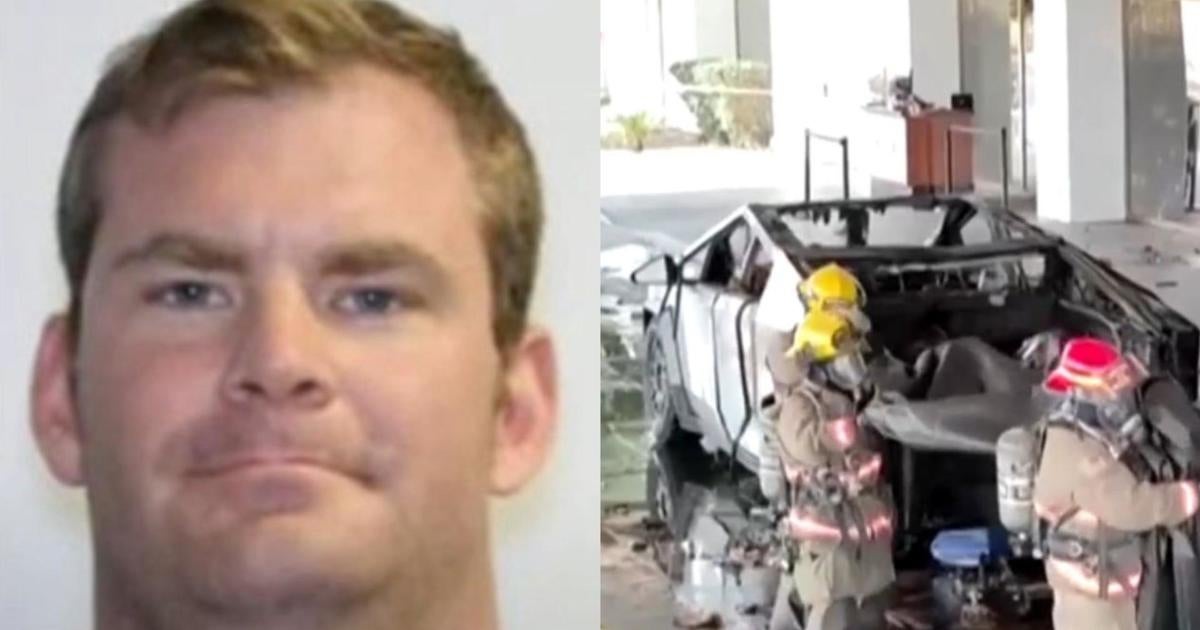The Tragic Explosion: Unraveling the Mystery Behind the Las Vegas Tesla Cybertruck Bombing
Prepare to be shocked! The recent Tesla Cybertruck explosion outside the Trump International Hotel in Las Vegas has sent shockwaves across the nation. Was it an act of terrorism? A random incident? Or something far more sinister? Our investigation unveils a heartbreaking tale of military trauma, mental health struggles, and a soldier's desperate cry for help that went tragically unheard.
The Soldier's Secret Struggle
Master Sgt. Matthew Livelsberger, a decorated U.S. Army Special Forces soldier, was more than just a warrior; he was a man battling unseen demons. Before the devastating explosion, he sent a haunting email to a fellow veteran, revealing a heart burdened by the horrors of war and the weight of lives lost. This email, a fragmented expression of sorrow and regret, hinted at a long-standing battle with his mental state that sadly, the Army's health and mental support network seems to have failed to capture or assist. The high-stakes pressure and intense physical and emotional toll of such deployments are a well-known issue that continue to damage the wellbeing of American Veterans to this day.
The Casualties of War: Invisible Wounds
Livelsberger's story tragically highlights the devastating effects of traumatic brain injuries (TBIs) and post-traumatic stress disorder (PTSD) that often plague our brave service members. His former girlfriend, Alicia Arritt, revealed his struggle with TBI resulting from his time in the Middle East. Livelsberger felt forced to deal with his suffering alone because he feared that treatment would harm his career and would end his time within the deployment cycle. This fear, unfortunately, may sadly resonate with so many other veterans and active service members currently battling mental health demons across the military establishment. The need for mental health assistance is urgent. More and more active military members, especially those who have seen active combat and the intense toll on mental health, need assistance as quickly as possible.
A Cry for Help, Ignored?
The Pentagon has stated there were no red flags prior to Livelsberger's actions. But his email to Samuel Shoemate, his visit to military behavioral health services and testimonies from those who knew him, all suggested he was carrying the unseen baggage of severe PTSD. This tragic occurrence is yet another tragedy among countless others resulting from what some have referred to as institutional failings of the U.S. Military to provide support to soldiers returning from the conflicts in Iraq and Afghanistan. His actions suggest a devastating lack of care.
The Las Vegas Bombing: A Public Display of Private Pain
While investigators officially classified the bombing as planned and executed alone by Livelsberger, several unanswered questions remain. Why did he choose the Trump International Hotel as his target? Was there a larger message behind his actions? While his former girlfriend maintained that the event was unforeseen, Livelsberger's own behavior appears contradictory to her assessment. In messages to his former girlfriend, Livelsberger was playful and unworried and did not reveal his internal turmoil or any plan to inflict this type of harm. Was the explosion an impulsive act fueled by sudden desperation? This question needs further research and analysis.
A Cryptic Email: The Warning Signs?
The chilling email mentioned earlier contained an allusion to an airstrike in Afghanistan, reportedly involving civilian casualties. Could this reference hold a key to understanding his motives? A clearer resolution is needed to truly solve this event's mysterious nature and determine whether Livelsberger was actually attempting to deliver a particular message.
Beyond the Blast: A Nation's Duty
The tragic events surrounding Master Sgt. Matthew Livelsberger's final hours should serve as a harsh reminder of the psychological damage our service members endure in conflicts overseas. His final acts bring home the urgent need for improved support systems and better awareness of the traumatic brain injuries that many endure as a result of combat exposure and intense physical demands. The issue also exposes and reinforces the vital importance of mental healthcare in the military. What can be done to improve these systems?
Seeking Solutions: Preventing Future Tragedies
We must improve services that support service members facing mental health issues while reducing the stigma around seeking help. Initiatives to destigmatize seeking care are vital in supporting the healing and the long-term wellbeing of our service members. Our soldiers have already given so much for their country. It's now our responsibility to take a leading role in ensuring they receive the care and assistance needed so that tragic acts such as these are avoided.
Take Away Points
- The Las Vegas Tesla Cybertruck bombing was not simply a random incident but the devastating climax to a soldier's struggle with mental health.
- The event showcases the dire need to address the pervasive issue of PTSD and TBI among military personnel.
- Improving military mental health resources, and decreasing the social stigma associated with receiving mental health care, should be an urgent national priority.
- Understanding Livelsberger's past and uncovering any other contextual details are critical to understanding this event and improving our ability to offer care.




